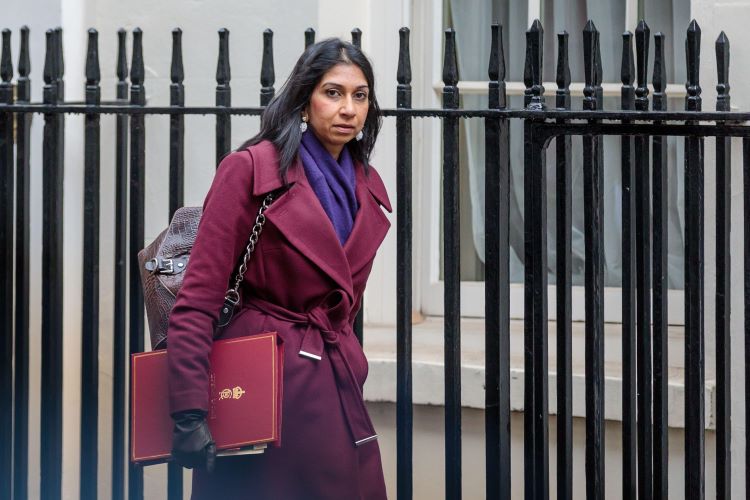Rwanda Policy: Rishi Sunak's Emergency Legislation Plan Explained
6 min read
Rishi Sunak has said that he will pass emergency legislation to stop the policy to send asylum seekers to Rwanda being “repeatedly blocked”, after the Supreme Court ruled that the plans are unlawful.
The Prime Minister announced this afternoon that the government is seeking a new treaty with Rwanda in an attempt to assuage the court’s concerns, and pledged that he would not let the plans be blocked in foreign courts.
What did the Supreme Court say?
The Supreme Court found the Rwanda scheme unlawful on the grounds that asylum seekers could be sent back to their countries of origin by Rwanda.
In June, the Court of Appeal ruled that the scheme was unlawful, but then-home secretary Suella Braverman appealed for the ruling to be overturned. Five Supreme Court judges have now decided in agreement of the ruling, having spent about a month considering legal arguments.
The Supreme Court judge Lord Reed said that the Court of Appeal was entitled to reach the conclusion that the scheme might break international law because it could potentially breach the rule that asylum-seekers cannot be sent back to their country of origin if their life is at risk.
“We agree with their conclusion,” the judge said. “The Home Secretary’s appeal is therefore dismissed.”
What has Rishi Sunak promised to do?
The Prime Minister said he does not agree with the court’s decision, but he does “respect and accept it”.
In the wake of the decision, officials are now working to agree a new treaty with Rwanda and Sunak has said he will not “allow” foreign courts to block the flights.
As well as bringing emergency legislation to the Commons, Sunak has said that a new treaty with Rwanda is in the works, which will guarantee that “those who are relocated from the UK to Rwanda will be protected against removal from Rwanda”.
He told a press conference in Downing Street this afternoon that he wants to “end the merry go round,” and ministers will “take the extraordinary step of introducing emergency legislation” which will mean Parliament can confirm “Rwanda is safe”.
“It will ensure that people cannot further delay flights by bringing systemic challenges in our domestic courts,” Sunak added.
The fight threatens to open up old rifts in the Conservative Party between the centre-ground and the right, but Sunak will be keen to keep his backbenches on all sides happy.
He said this afternoon that he will “not allow a foreign court” to block flights to Rwanda, amid the possibility of revolt.
“If the Strasbourg Court chooses to intervene against the express wishes of Parliament, I am prepared to do what necessary to get flights off, I will not take the easy way out,” he said, having earlier told the Commons that he was “prepared to revisit our domestic legal frameworks” if necessary, suggesting that he is prepared to pursue changes to the European Convention of Human Rights (ECHR).

However, Home Secretary James Cleverly had earlier said that ministers are "not going to put forward proposals simply to manufacture an unnecessary row for political gain".
Why is a new treaty needed?
The Supreme Court said that the Court of Appeal were right to conclude that the plans could break international law because they might break rules on asylum seekers being sent back to their country of origin. .
The new treaty, Sunak said, will provide a guarantee in law to protect against this, and mean that “those who are relocated from the UK to Rwanda will be protected against removal from Rwanda.”
In practice, if agreed, the treaty would mean that people who do not pass asylum processing will stay in Rwanda.
The treaty will also ”make clear that we will bring anyone back if ordered to do so by a court,” Sunak added.
In order to be ratified, a treaty could need to be approved by both the House of Commons and the House of Lords.
What do Conservatives think about these plans?
Among those behind Sunak on the green benches is former home secretary Suella Braverman, who was sacked earlier this week, and today warned ministers that they must “legislate or admit defeat” on the policy.
Posting on social media this afternoon, she said: “Today’s Supreme Court judgement is no surprise.
“It was predicted by a number of people close to the process. Given the current state of the law, there is no reason to criticise the judges.
“Instead, the government must introduce emergency legislation.”
One senior figure on the right of the party who is "furious" about the Supreme Court ruling said they were not convinced by PM's announcement. They felt 10 Downing Street calling a press conference and using the term "emergency legislation" to describe what would ultimately be a normal piece of legislation was a sign of panic within Sunak's team.
Meanwhile an ally of Braverman said: “This is a treaty which he’s putting in legislation - it’s just another version of Plan A. He’ll be stuck in the courts again. More magic tricks from Rishi’s magical thinking.”
The centre-right Tory Reform Group pointed on social media to a statement of theirs from September of this year, and said that leaving the ECHR would be an "a historic mistake, aligning us with Russia and Belarus internationally and risk the Good Friday Agreement".
What do the public think of the plans?
Snap polling from YouGov released this afternoon - before Sunak’s press conference - indicated that almost four in ten people (39 per cent) think that ministers should now scrap the policy entirely, compared to 29 per cent who think officials should seek a similar policy with another country.
Meanwhile, a majority (51 per cent) back remaining a member of the ECHR, compared to 28 per cent who think the UK should withdraw.
